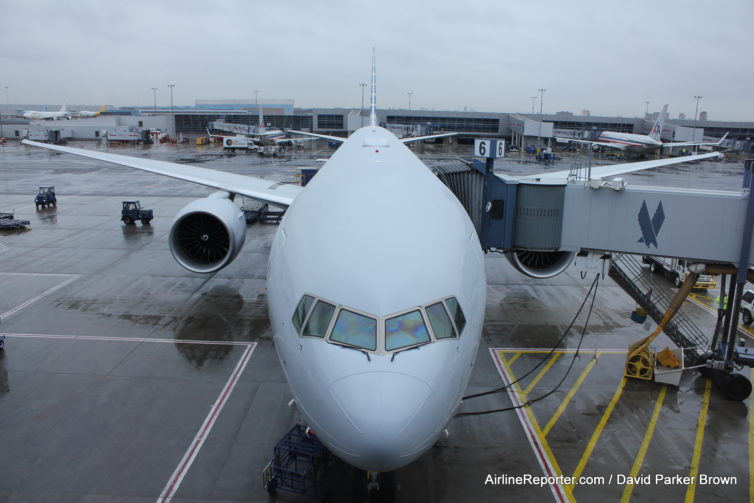
I want to fly, but I just wouldn’t do it right now
There are many people right now questioning if it is safe to fly. It is a valid question, but I do not have the answer. For me personally, I have decided not to fly and I probably won’t be in the air for quite some time. Let me share some of my thoughts about the current situation, explain why I am not ready, and provide some advice for those who end up flying.

I miss seeing Mount Rainier from the air!
I love the airline business and it has pained me to watch the industry suffer. Hearing about the financial losses and seeing aircraft lined up in the desert is one thing, but employees losing their jobs is devastating.
For the most part, I think airlines and their employees have done an amazing job tackling this unprecedented situation. They have kept passengers informed on new safety procedures and have promoted the quality of the cabin air. No question this builds trust.
I am less worried about the airlines, but more concerned about the uptick in COVID, the other aspects of traveling, and most importantly: other passengers.
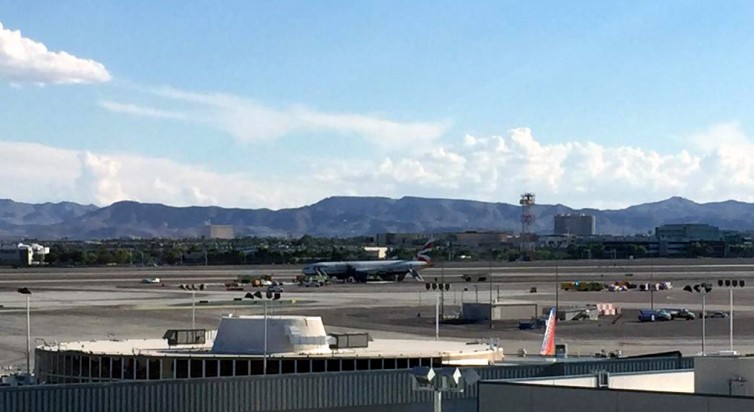
British Airways flight 2276 at Vegas – Photo: McCarran Airport
Today, we at AirlineReporter share two different opinions on passenger evacuations of an airliner during an emergency. In recent incidents, we have seen passengers taking their bags and people reacting. This story shares the opinion that it is not that big of a deal to take your bag and is written by an anonymous writer (that has been verified), who is a frequent flier, no stranger to the airline business, and is a writer. Be sure to read the opposite opinion and share your thoughts in the comments.
First off, I agree that probably it is best to leave your bag on a crashed/burning airliner. However, the attention that I have seen given to passengers who end up taking their bags with them during an emergency sickens me.
These people just went through a major incident, where many likely felt that they were going to die. Could you imagine going through something like that and then instead of having people asking you if you are okay, they harass you? I wouldn’t want that either. It now seems to be the popular thing to do.
If some of you will take the time to get off your high horse and read this, maybe you won’t be so quick to judge. I argue that people shouldn’t automatically be ostracized for grabbing their bag in the middle of a potentially deadly evacuation.
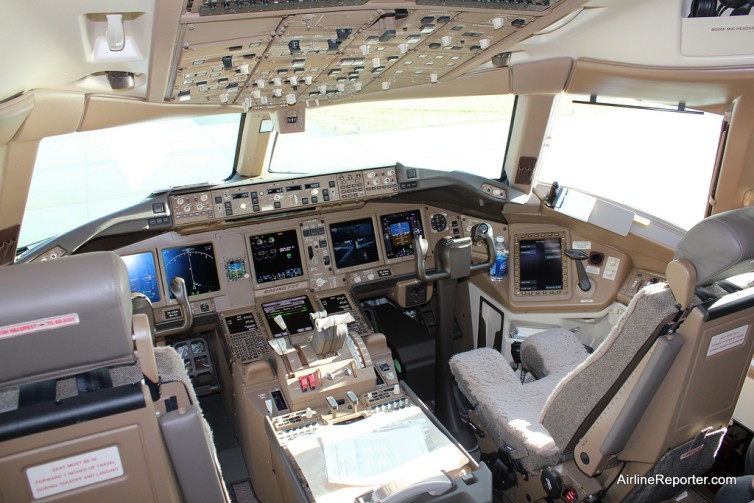
A flight deck of a Boeing 777.
Today, we at AirlineReporter share two different opinions on passenger evacuations of an airliner during an emergency. In recent incidents, we have seen passengers taking their bags and people reacting. This story shares the opinion that passengers should leave their bags and is written by Captain Owen Zupp, who is a published author, journalist, and experienced commercial pilot with over 17,000 hours of varied flight experience. His story was originally published on ThePilotsBlog.com and shared here, with permission. Be sure to read the opposite opinion and share your thoughts in the comments.
The smoke plume from British Airways Flight 2276 was still reaching skywards as people were posting dramatic images across the internet. Both distant shots and photos from passengers were blinking across the globe as fire crews tended to the stricken Boeing 777. It was a day and an event that aviation professionals dread, and yet it is also the very eventuality that endless hours of training have been directed towards.
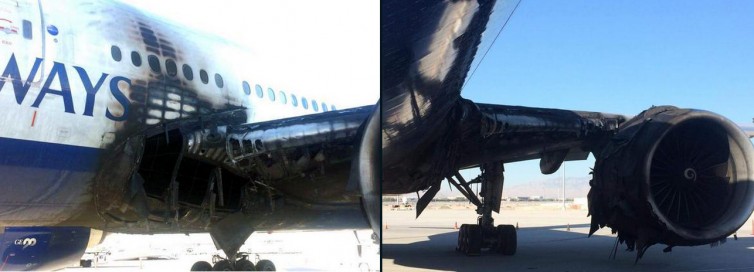
Some of the damage on the British Airways 777-200ER at Vegas – Photo: NYCAviation
On the flight deck, a “rejected takeoff” is a maneuver that is part of every recurrent simulator session for pilots. Crews are tested for a range of scenarios, from engine failure and fire, to tire deflation and loss of visibility. Sometimes, the choice to reject the takeoff is obvious; in others, it is more obscure, such as when the failure occurs at low speed with its own directional control issues, or when the problem arises at high speed when the aircraft is beyond its decision speed, or ’˜V-1’, and the takeoff must continue.

This is the reason that most of us fly, being able to look down at the earth below us.
Flying around the U.S. is something that so many people do on a regular basis. The process used to be much more stressful. Having to track down a travel agent or even buying your ticket at the counter, hoping that there was a seat available. Today, we are able to book our tickets online, months in advance and can have increased confidence that we have a seat on the plane. But even in today’s hi-tech aviation business, there are still times that almost make it feel low-tech and high-stress. I experienced one recently on a flight to Las Vegas. That weekend in Vegas may have been fun, but for this AvGeek it was extremely stressful and I am not even sure if it was worth it.
There are many people who have airline benefits and have the ability to fly for free around the world. I have flown on these “buddy passes” before and previously, and it was not that bad of an experience. However, this trip to Vegas has seriously made me reconsider ever using one again.
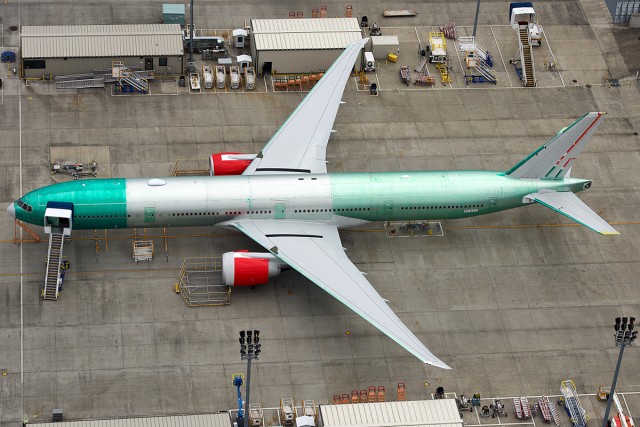
Boeing is one of the largest exporters of anything in the U.S. in terms of dollar value – Photo: Bernie Leighton | AirlineReporter
Before their summer recess, the U.S. Congress didn’t get many things finished; some would say intentionally. Most crucial for those of us in the aviation realm is the “sunsetting” of the U.S. Export-Import Bank. What is this bank, exactly? Well, it’s almost more of an underwriter.
Founded in 1934 by executive order, but affirmed into its own agency by law in 1945, the Export-Import Bank of the United States exists to offer insurance, loan guarantees, and other financial products to foreign customers. Why? Well, the goal of the bank is to provide American jobs and revenue to American companies while selling the goods abroad.

Screen shot of the bank’s website, taken on July 2, 2015
Who is America’s largest exporter in terms of real dollar value? Boeing!
What does Boeing do? Well, you are reading this site – you probably have an idea. Boeing, especially Boeing Commercial Aircraft, depends on the Export-Import bank to offer competitive financing rates to international customers. Or, if financing rates have already been obtained externally, offering an extra back stop for customers that do not have a long history of highly-rated credit.
The Ex-Im bank is not a lender of last resort – they are a paramount of financial virtue and do everything by the book. More importantly for those of us in America, they can sometimes offer better rates than the commercial markets in the name of continuing U.S. trade. Truly, to explain the Ex-Im bank’s importance would require a thesis-length article with lots of graphs. No one, but me, wants to read that. So let’s keep it simple, shall we?







